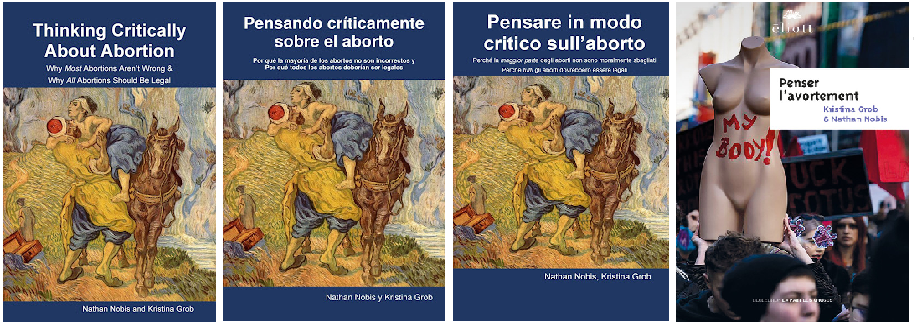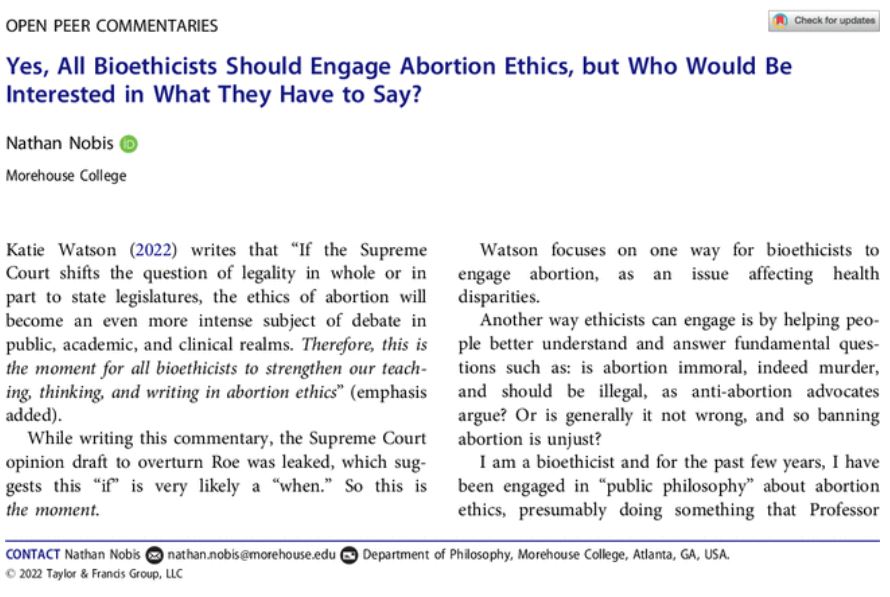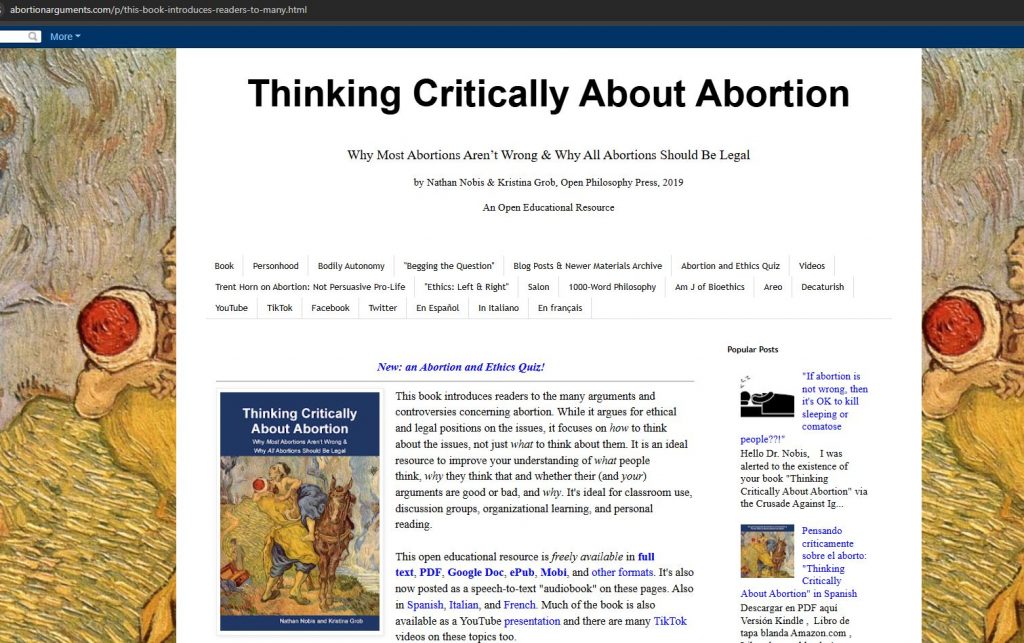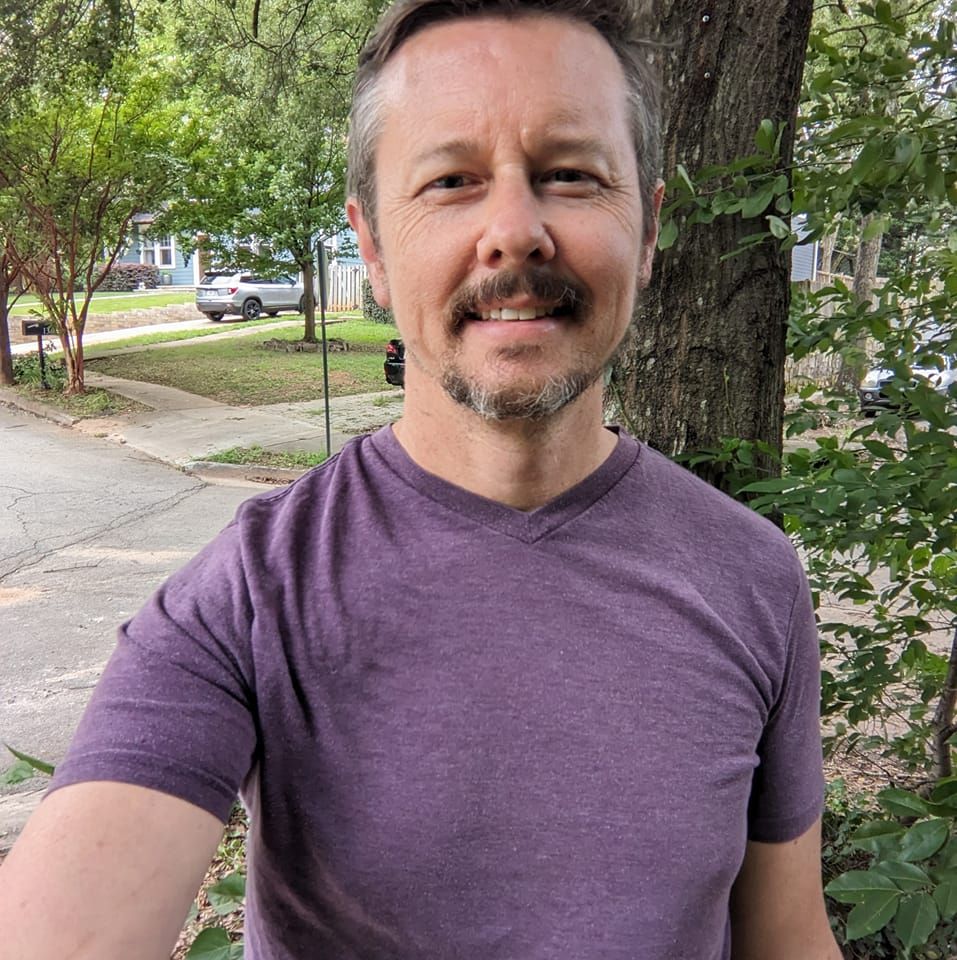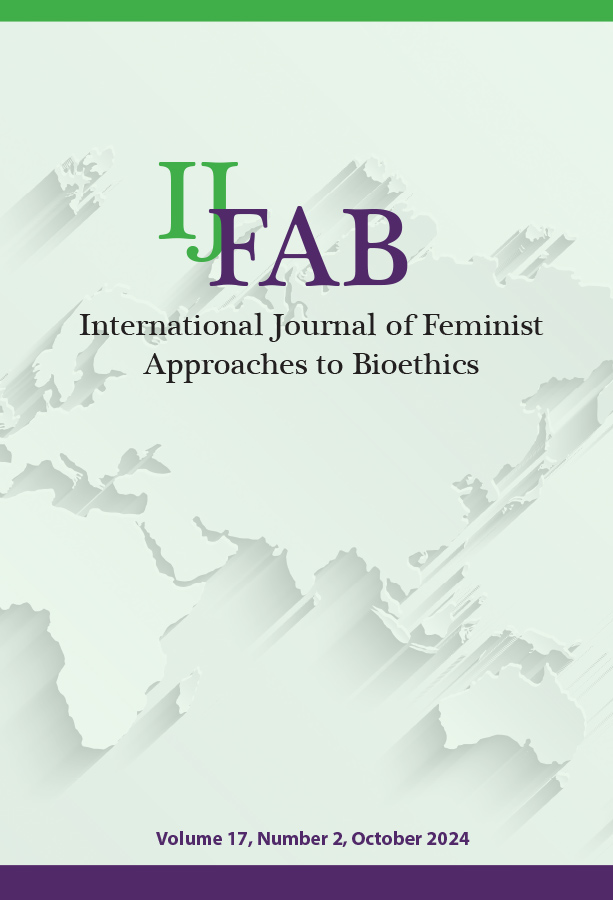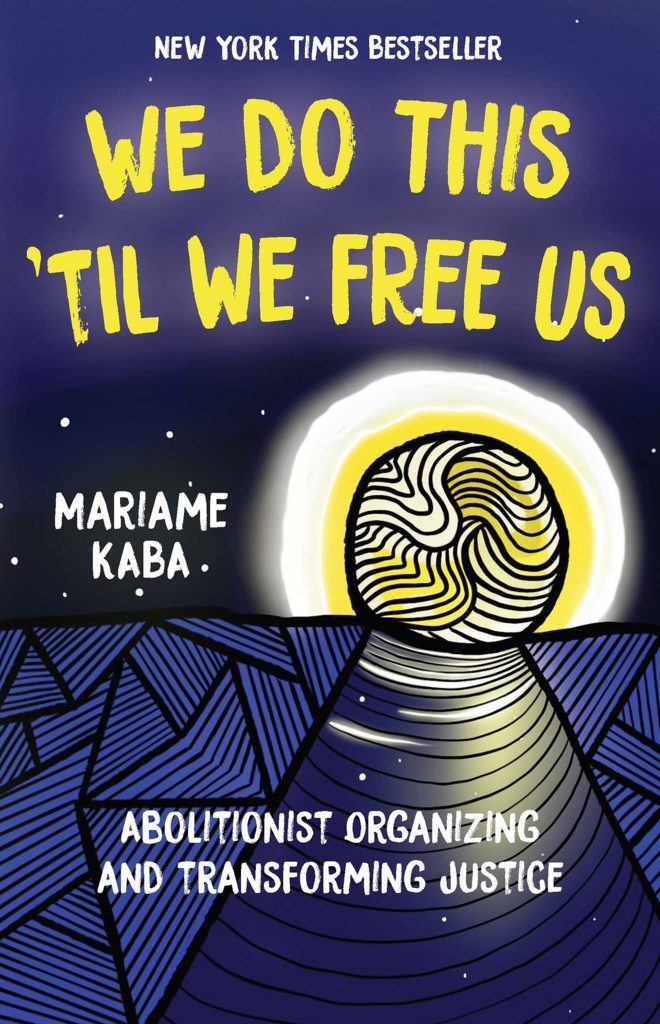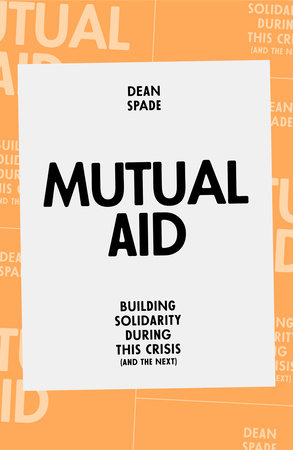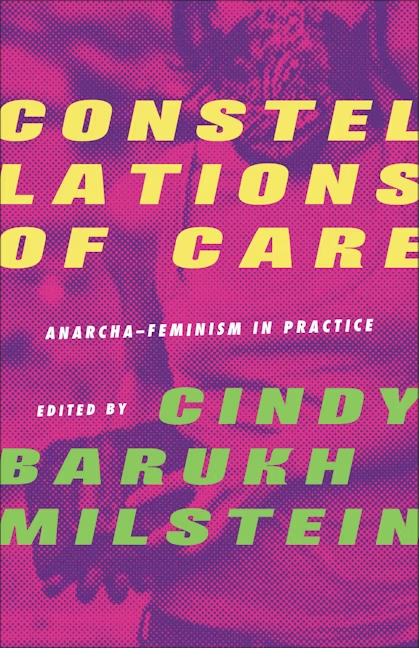Guest author, philosopher, and legal scholar Ira Chadha-Sridhar presents the importance of care ethics for biomedical ethics while outlining necessary questions the approach must confront. You can find more of her published work at Res Publica, the Canadian Journal of Law and Jurisprudence, and the National University of Juridical Sciences Law Review.
Care ethics, or the ethics of care, is often framed as an approach within the larger discipline or practice of bioethics or health ethics, and there has been considerable scholarship about what care ethics can add to ethical issues arising in the course of health care, biomedicine, and scientific research in the life sciences. This work has led to interesting results, and is increasingly gaining traction. However, as a theorist working on foundational philosophical questions in care ethics, I often find that there seem to be conceptual issues within care ethics that must be addressed – perhaps before care ethics can fully and meaningfully contribute to discourse around the ethical challenges faced by practitioners in the domains of medicine, health, life sciences, and health care. Why do I say this? And what do I mean?
When care ethics is brought into conversation with bioethics, it is frequently described through what seem like its unifying features: it is talked of as a ‘relational approach’, is seen as a framework that sees the self as interconnected, dependent and vulnerable – rather than autonomous and individualised, and is said to ‘reject moral principles’ and the abstraction they bring in favour of contextually sensitive or particularist moral thinking. When I first began engaging with care ethics, these ideas resonated deeply. They still do in many ways: they reveal a strong connection between care ethics and feminist praxis, reflecting the lived experiences of women – particularly from marginalised caste and class communities – who have historically carried the burden of care work, and they seem to reveal a view of the self that emerges from centralising the relationship between the ‘carer’ and the ‘cared for’. Indeed, this perspective, that Carol Gilligan famously termed a “different voice,” arguably stood in contrast to the “dominant” approaches within ethics and moral philosophy.
But, as I have delved deeper into what is sometimes characterised as the “mainstream” of moral, political, or legal philosophy (though what the fringe is and what the mainstream is in these disciplines is a matter for indefinite contestation), I have seen that many ideas associated with care ethics are, in fact, inescapably present in other philosophical approaches and are not exclusive to care ethics. For instance, material about the self as importantly relational and interconnected can be found as far back as Hobbes(though perhaps in a different form than in feminist theorizing). And several philosophers across traditions have emphasised, in a variety of ways, the interconnected nature of human beings, the value of personal relationships, and the nature of the self and personal identity. Crucially, the anti-principlism commonly associated with care ethics parallels Jonathan Dancy’s approach within analytic moral theory – what he calls “moral particularism” – a well-established school of thought critical of principle-based ethics. In fact, Dancy engages with care ethics and discusses whether it is a particularist ethic in one of his writings – a piece that has not found engagement from within care ethics, at least not the engagement it seems to warrant. To overlook the discussion of these ideas within philosophy, more generally, – as care ethicists have sometimes done in claiming distinctiveness on these fronts from the “mainstream”– is to present those traditions in their least charitable, and arguably inaccurate, form.
This is not to say that care ethicists have nothing new to contribute. Quite the contrary. As I see it, first, these claims are often made by care ethicists but in different ways from how they are established within other ethical approaches. There might indeed be an important distinctiveness here – it is just that engagement with these other approaches would help establish it. Second, focussed analysis around the concept of care itself from care ethics is a critical and genuinely interesting contribution. And it has complicated, important connections within feminist theory that require unpacking. It is also true that the concept of care has been significantly underexplored, as a thing in its own right, in both moral and political philosophy. It is philosophers of care, inspired by Gilligan, who have worked to understand what it means to care, and how care is morally significant. This focus on care as the foundation of moral theory is both distinctive and promising – and if our conceptual understanding of care is sharpened, care ethics can offer a powerful new perspective for addressing ethical challenges that arise in the fields of medicine, life sciences research, public health, and health care.
1. The Ethics of Care
The ethics of care – a moral theory that originated in the 1980s – can be traced back to the publication of Carol Gilligan’s foundational 1982 text In A Different Voice: Psychological Theory and Women’s Development. In this work, Gilligan investigated the implications of excluding the perspectives of women and girls from research in developmental moral psychology by examining why women consistently scored lower than men under the hierarchical model of moral progress developed by her mentor, Lawrence Kohlberg. Gilligan argued that women were not inferior to men in terms of moral maturity or development, as the results of the Kohlbergian study implied. Instead, they spoke in a “different voice” from their male counterparts. The contents of this different voice are revealed through a series of narrations by the female participants in Gilligan’s study. Broadly speaking, the participants affirm a view of the self as being constructed by intimate relationships and an ethical perspective that highlights the moral value of care. These empirical findings paved the way for the ethics of care.
Since the 1980s, and until today, Gilligan’s findings have garnered significant attention in philosophical circles. With early philosophical investigations on caring by the likes of Virginia Held, Diemut Bubeck, Eva Kittay, Sara Ruddick, and Nel Noddings, the approach gradually matured into a moral theory in its own right. The core claim that care ethicists advanced was that caring is not just a crucial social activity or practice that warrants examination through the empirical methodology of the social sciences; rather, care is also an important moral value. It thus deserves sustained philosophical attention.
Gilligan’s findings and the emergence of what was increasingly spoken of as a “feminine ethic of care” sparked significant controversy. In the 1990s, a range of criticisms emerged from feminists who argued that care ethics valorizes women’s oppression: women are oppressed by having to undertake the majority of care work under patriarchy, and care ethics glorifies this oppression as morally valuable. A second, related line of criticism was that care ethics, in some of its forms, is essentialist – that is, it fails to account for the variety of ways in which women differ from one another along other structural axes, and essentializes a single perspective as the biologically “inherent” or “essential” woman’s voice. There was thus significant pushback against this allegedly essentialist brand of care ethics that (perhaps unintentionally) made tenuous claims about care ethics being a woman’s view of morality.
Now, this debate has moved forward in significant ways since the 1980s. As early as 1993, Gilligan herself resisted characterizations of care ethics as a woman’s perspective on moral reasoning, in the second edition of In A Different Voice. From then to now, we see that philosophical interest in care ethics has only grown over the years and some of the early challenges around care ethics and its relationship with feminist thought are being discussed, but somewhat separately from the substantive efforts from care ethicists to understand what it means to care, how caring is morally valuable, and what our moral and political responsibilities to care for others require of us. Work by contemporary care ethicists focusses on some of these questions, and on developing the care ethical approach into a full-fledged moral theory. Simultaneously, alongside these efforts to strengthen the approach itself, care ethics has had a widespread impact on a range of other disciplines such as medicine, political theory, international relations, law, economics, business, and art and aesthetics.
However, despite these significant developments within care ethics and its far-reaching impact since the 1980s, certain crucial gaps still persist in the literature today: what does it mean to care for others? Or to care about others? What do these actions or attitudes involve? Focussed attention on the concept of care is required to make sense of these issues – and this has been the focus of my research.
2. Care as a Thick Ethical Concept
So, what exactly does the concept of care pick out? In a recent paper, I argue that the concept of care (hereinafter, ‘care’) should be understood as a thick ethical concept. Thick concepts can be attributed largely to the work of Bernard Williams in the 1980s. Williams, notably, was famously critical of traditional moral theorizing at the time. Drawing on work by Philippa Foot, Iris Murdoch, and R. M. Hare, Williams distinguished between thin concepts like “good” or “bad,” which primarily evaluate (e.g., labelling something as valuable or of disvalue, or as praiseworthy or blameworthy), and thick concepts like “courage,” which carry both descriptive and evaluative content. Calling someone courageous describes their behaviour – facing danger without fear – while simultaneously praising them. Care, I argue, functions similarly.
Care is both a matter of social fact – comprising actions, practices, and labour – and a thing of moral value. Calling an action “caring,” for instance, involves both describing something about the action – such as that it was done to attend to important needs – and evaluating the action as generally morally valuable. Feminist work on care across academic disciplines has illuminated the social and unequal distribution of care work, while feminist care ethics – as we have seen – is committed to highting that caring is morally valuable. By describing care as a matter of social fact – often performed under unfree or unequal conditions, in which women from certain social groups undertake the majority of care work, we can simultaneously acknowledge both the character of the act and the injustice of the practice, while still recognising the value of the work.
A thick conceptual framing thus allows us to describe the nature of what it means to care, and the structural conditions under which care work is performed as unjust, while still affirming that care work is morally significant. This tension – between describing the nature of care work, often embedded in unjust social systems, and normatively recognising caring as critical or valuable – is at the heart of contemporary conceptual work in care ethics. Framing care as a thick concept, I think, allows us to capture both these aspects and offers us clarity to our exploration.
3. Significance for Health Care Ethics
I want to preliminarily make the case here that conceptualising care along these lines, and addressing difficult conceptual questions about care, can be particularly helpful in the context of health care ethics and even for the field of health care law – note that the naming and labelling of these fields is also a complicated, contested domain.
As I formulate it, the concept of care is a thick ethical concept, which would allow us to both describe the nature of the work done by health professionals as care work, and to capture the normative ambitions of the field. This includes describing systems of medicine and healthcare in terms of their fundamental function of caring. Ruth Groenhout’s work offers such a perspective: in her 2019 book, she argues that an ethics of care enables a focused analysis of how social structures affect the healthcare system’s capacity to meet patients’ needs, how these structures shape relationships between patients and caregivers, and how they impact caregivers’ own identities and capacities for care. Similarly, Eva Kittay’s foundational contributions bring care ethics to bear on questions around the regulation of disability within biomedicine, emphasising the ethical stakes involved in how care is understood and distributed. By integrating care ethics into our descriptions of the field, we gain a richer understanding of key aspects of healthcare – whether in the direct delivery of care or in the institutions that enable, constrain, and regulate its provision.
Framing care as a thick concept also allows us to engage with the normative ambitions of those working within the field – practitioners, policy makers, and academics – who are oftentimes motivated not just by the practicalities of delivering care, but also by certain commitments to ensure that care is delivered well, equitably, and in ways that uphold the well-being and dignity of both caregivers and those they care for. Some care ethicists have made these normative ambitions central to healthcare ethics. Rosemarie Tong, for instance, argues that “true care and bona fide virtue can flourish only in societies that treat all persons with equal respect and consideration.” Similarly, Jonathan Herring’s writings show that the work of carers is too often undervalued and unrecognised in law and traditional medical ethics, and that we need frameworks that acknowledge and affirm the value of care. These are not just descriptive claims, but claims about moral value – and a thick conceptual framing of care allows us to identify and engage with them as such.
Further, when health professionals are tasked with diagnosing or treating a patient, it seems they are involved in caring for the patient – that is, acting to meet their needs. Whether or not they succeed in this care is another matter, but their actions and efforts can indeed be described as caring-act types. With this in mind, if health care concerns the performance of caring actions, then care ethics can offer an ethical framework internal to the practice of health care by drawing on principles based around care.
This is important because, oftentimes, health care ethics is brought into conversation with dominant theories external to the health care context – general theories like deontology, consequentialism, or virtue ethics. While these theories can be applied to the health care context, they are not internal to the field. Care ethics – as an ethical approach based specifically on the concept of care – has the potential to offer a framework that is internal to the practice of care, allowing us to base ethical standards on caring itself rather than on external principles. This is valuable because when ethical theorising is grounded in the very practice it seeks to regulate, it can be more attentive to the relevant ethical concerns, more responsive to the complex nature of decision-making, and more sensitive to the range of moral and political issues that arise in the act of caring. A care-based framework thus promises to be internal to both the practice of health care and the normative ambitions of the field in a way that general ethical theories are not – or at least, not to the same extent.
This is an ambitious endeavour – but an important one. Philosophers working in care ethics seem very aware of the close connection between conceptual work on care and its implications within healthcare and bioethics. Those engaged in clarifying what it means to care are not merely addressing these conceptual questions for their own sake; rather, they do so with the recognition that such work can form the foundation for a moral theory rooted in care itself – one that can offer ethical standards internal to the practice of medicine and health care.







